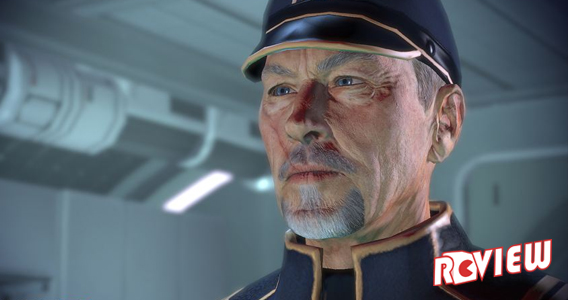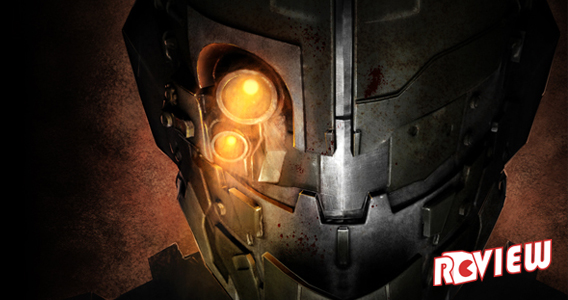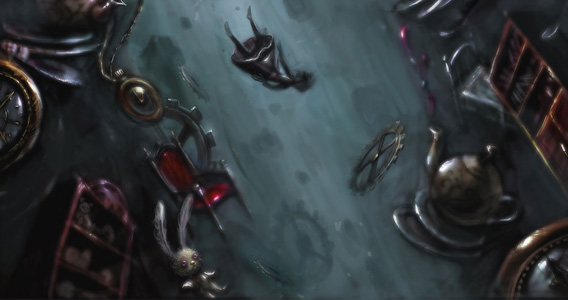
‘But I don’t want to go among mad people,’ Alice remarked.
‘Oh, you can’t help that,’ said the Cat: ‘we’re all mad here. I’m mad. You’re mad.’
‘How do you know I’m mad?’ said Alice.
‘You must be,’ said the Cat, ‘or you wouldn’t have come here.’
From the time I was first able to competently hold a controller, each year in gaming has brought a few titles that tempt my unbridled anticipation only to deliver disappointment. And while age hasn’t necessarily made me wiser in that regard, it has furnished me with the ability to move on quicker thanks to the divide between the child stuck with a stinker of an NES cartridge and the here-in-now that allows me immediate access to the next “big thing”. With that said, Alice: Madness Returns deserves a few words before the year draws to a close, because it’s a rather fascinating failure.
My anticipation for any interpretation of the source material forgave perceived expectations of simplicity inherent to the name American McGee – the shtick of twisting existing works, wringing Wonderland like a wet towel drenched with gothic tears. But my expectations were derailed by a convoluted narrative that fumbled in trying to do more – namely attempting to tie together the psychological deviancy of this dark Wonderland with real world suffering and a trail of breadcrumbs tripping around a tale of child abuse.
The result is truly strange in the attempt to bring reason to the madness, as if trying to provide the finality of definitive explanation taints the surreal magic of Wonderland. There’s more solid ground to provide rich soil for criticism, particularly the relentless tedium of the cookie-cutter platforming action. But what truly left me reeling was the divide between brilliance and confusion in a game earnestly dripping with creative energy.
The Walrus and The Carpenter, for instance, put on a show that uses lyrical charm and dark theatrics to bring the potential of the source material to life and nearly justify the grinding play required to reach the performance. But this is accompanied by awkward insertions of material, particularly the dollhouse world that grabs at a far more direct statement of intent and wants for the most ridiculous analogy about misplaced puzzle pieces possible.
The game speaks to Spicy Horse’s artistic talent, from breathtaking concept imagery straight through to a revisit of Wonderland that bursts with color and imagination rivaling any of the year’s more favorable releases. Despite the bumpy graphical road Alice traverses, there’s a continual supply of seductive visual details to beg forgiveness for the hiccups.
The failure I find so fascinating is in the attempt to bring reason to madness, which seems to so obviously fail to recognize the madness inherent in the pursuit. It’s a tricky sticky talking point given the various interpretations of Wonderland that exist, but I can’t escape the feeling that Madness Returns crossed into a territory others were wiser to leave unexplored.
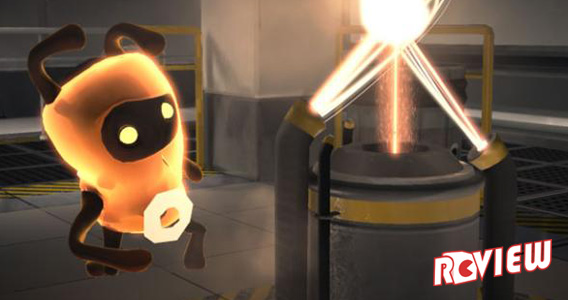

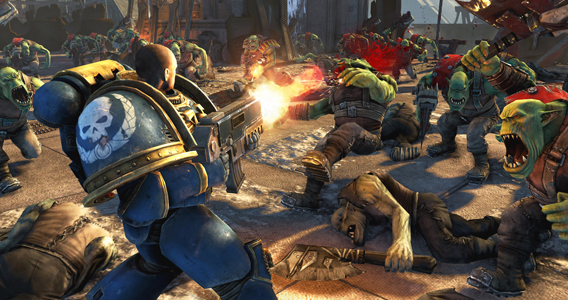
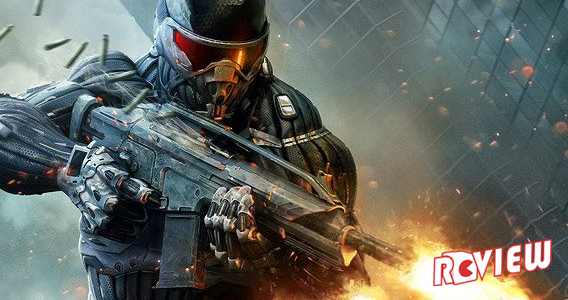 It’s not difficult to imagine EA sitting down with Crytek, somewhere in the indeterminate space between Crysis and Crysis 2, fingers tented carefully and asking “Can you make it more like Call of Duty?” I don’t mean “It’s a funny joke to think about,” I mean I believe this happened. I believe it occurred in our discrete reality.
It’s not difficult to imagine EA sitting down with Crytek, somewhere in the indeterminate space between Crysis and Crysis 2, fingers tented carefully and asking “Can you make it more like Call of Duty?” I don’t mean “It’s a funny joke to think about,” I mean I believe this happened. I believe it occurred in our discrete reality.